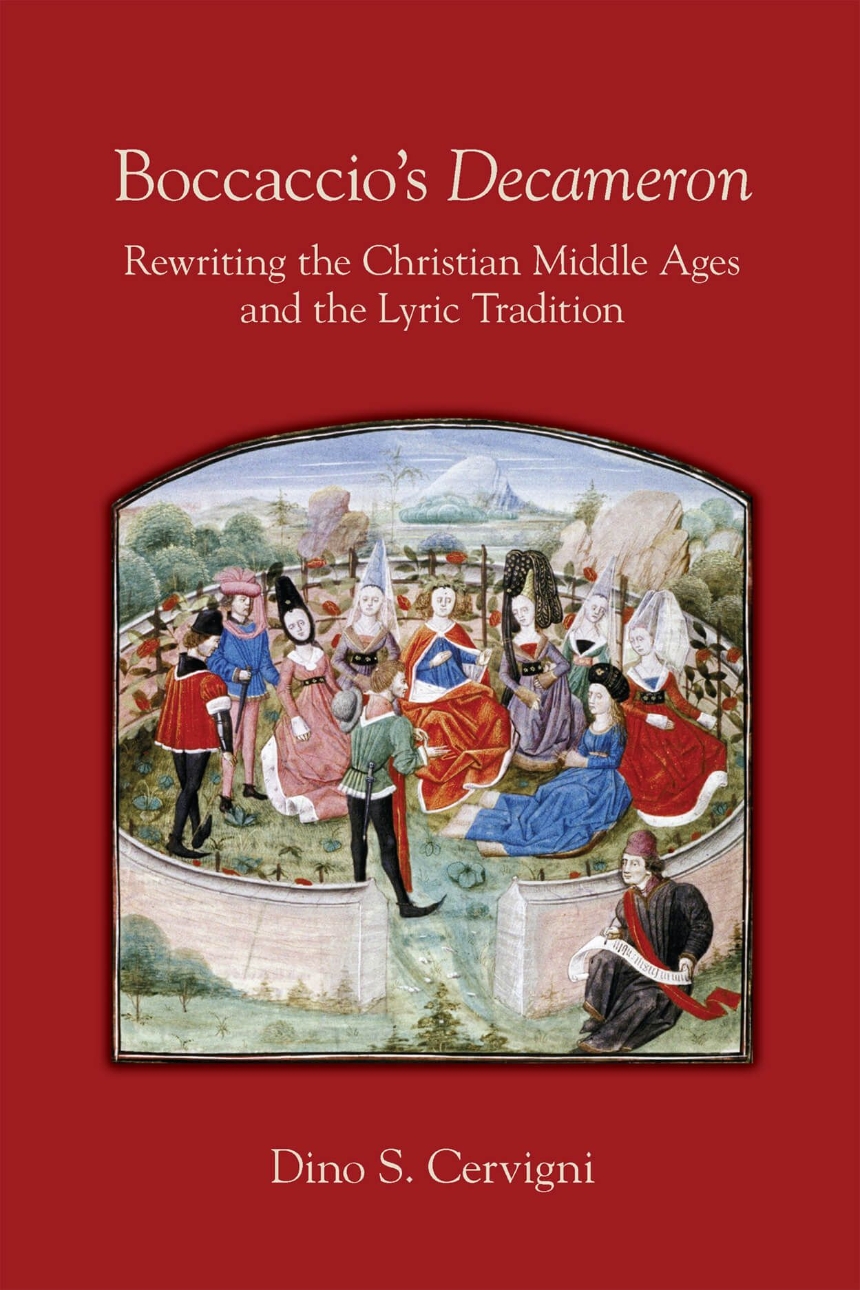Distributed for ACMRS Press
Boccaccio’s "Decameron"
Rewriting the Christian Middle Ages and the Lyric Tradition
This study develops a new interpretation of The Decameron, Giovanni Boccaccio’s masterpiece, which has found new popularity in the wake of COVID. Dino S. Cervigni offers an inclusive and novel reading of the collection, theorizing that the first ninety tales offer a parodic rewriting of the Christian Middle Age, while the last ten tales craft a reconstruction of society based on human and liberal principles such as generosity and sacrifice.
Still relevant to this day, The Decameron offers a notable description of the bubonic plague of 1348 which devastated Western Europe—drawing striking parallels with the current global pandemic. Furthermore, Boccaccio’s concluding message applies to all of us in the present moment, plunged as we are into a world of intellectual and ethical chaos, exhorting us to practice forgiveness, compassion, tolerance, mutual acceptance, and generous open-mindedness. No other book on The Decameron offers such a relevant, up-to-date reading of the classic work.
554 pages | 6 x 9 | © 2021
Medieval and Renaissance Texts and Studies
Literature and Literary Criticism: Romance Languages
Table of Contents
Notes on Citations of the Decameron
Introduction
1. The All-Encompassing Discourse: Topoi of the Poet, Women, and Critics
2. The Brigata’s Overarching Tale: Rewriting the Christian Middle Ages
3. The Decameron’s Ballads and Emilia’s Song: “I have such desire for my own beauty” (“Io son sì vaga della mia bellezza.” Dec. 1)
4. Pampínea’s “What woman will sing if I myself do not?” (Qual donna canterà, s’i’non cant’io?” Dec. 2)
5. Lauretta’s “No woman without consolation” (Niuna sconsolata.” Dec. 3)
6. Filostrato’s Desperate Song: “Weeping, I show” (“Lagrimando dimostro.” Dec. 4)
7. Dioneo in Love’s Chains: The Erotic Storyteller vs. the Pathetic Lover
8. Love, War, and Servitude in Elissa’s (Dec. 6)
9. Filomena’s Unhappy Love: “Ah, my wretched life!” (“Deh lassa la mia vita!” Dec. 7)
10. Panfilo’s Erotic Song: “So great, O Love, is the good” (“Tanto è, Amore, il bene.” Dec. 8)
11. Neifile’s Distant Beloved: “A young girl am I” (“Io mi son giovinetta.” Dec. 9)
12. Making Amends and Behaving Magnificently: Dec. 10’s Secular Redemption
13. Fiammetta’s Desperate Ballad (Dec. 10): Concluding All Lyric Singing
14. The Decameron’s Precarious Centers, the Author’s Story, His Open-ended Conclusion
Appendix: The Narrator as Moral Commentator: Humor, Humorous Tales, and Humorous Storytellers
Works Cited & Bibliography
Index of Important Matters
Index of Names

